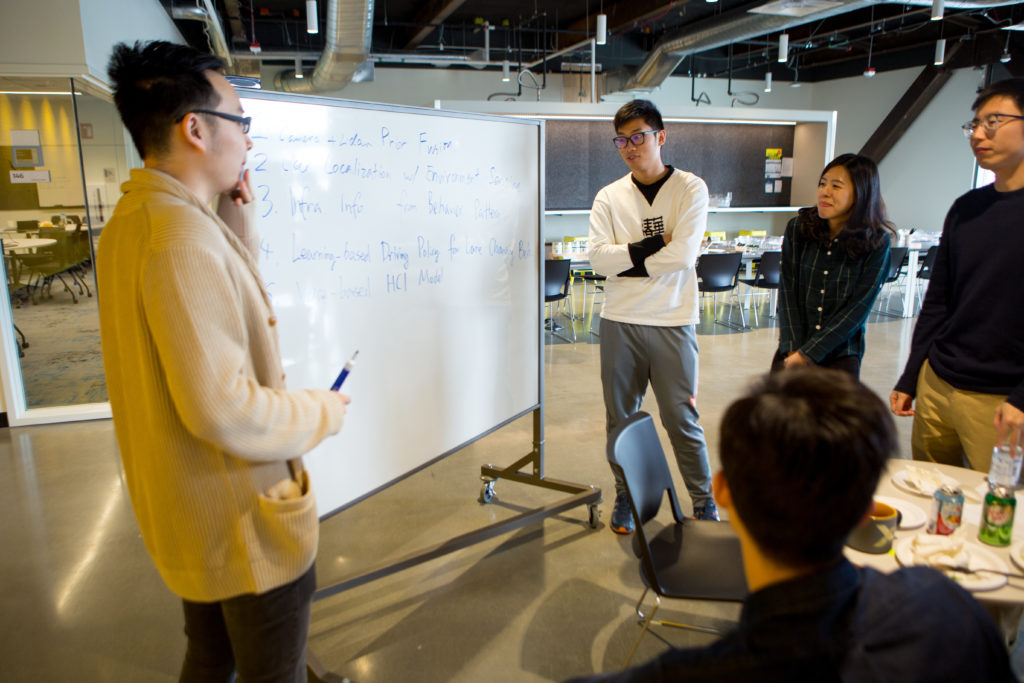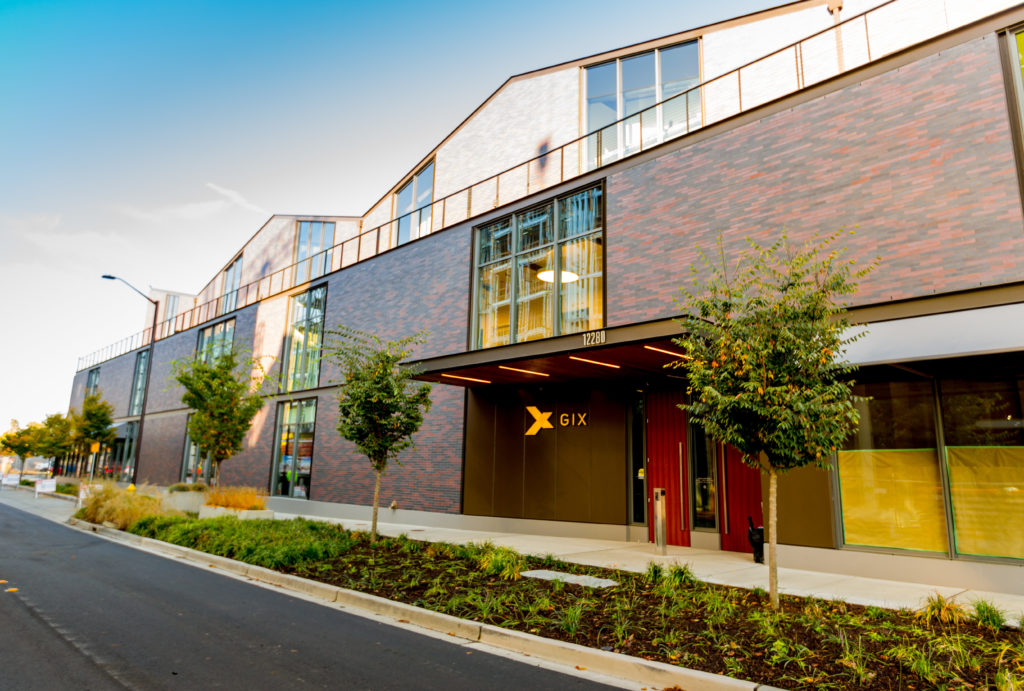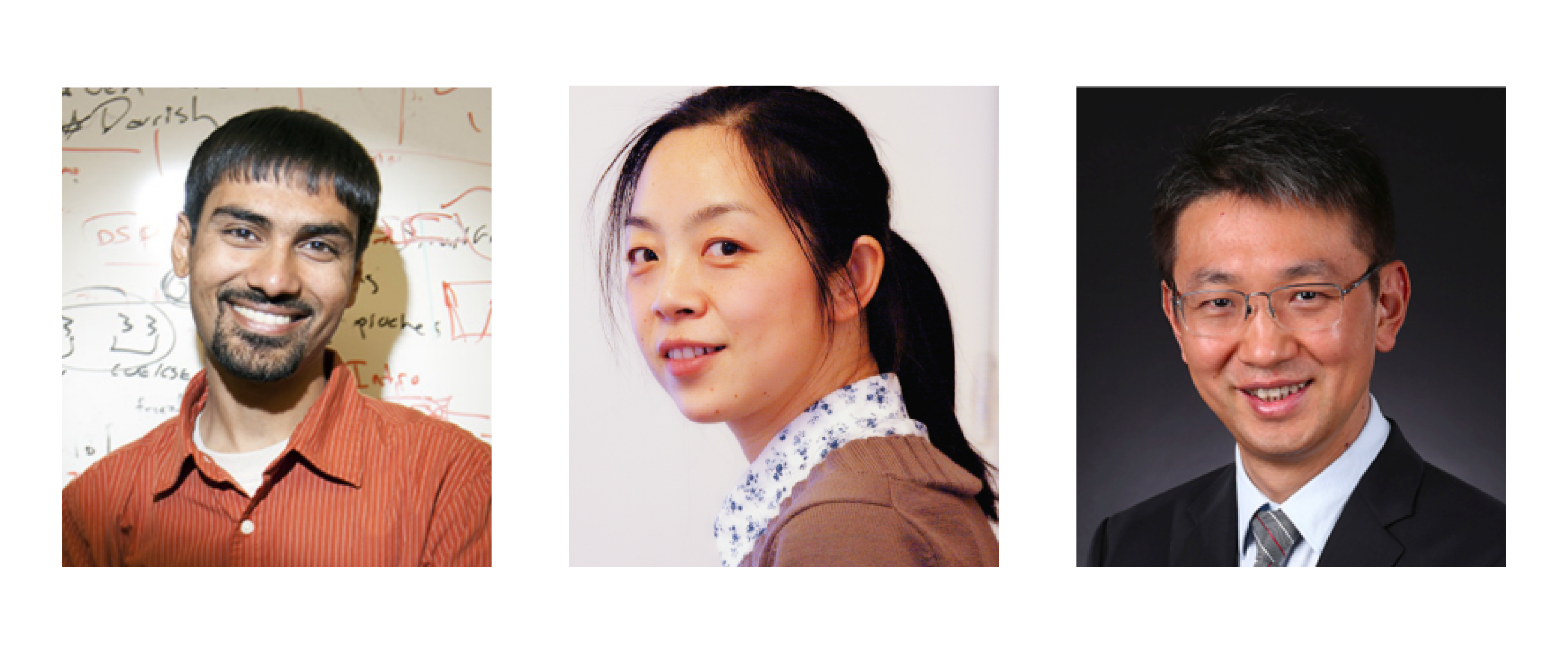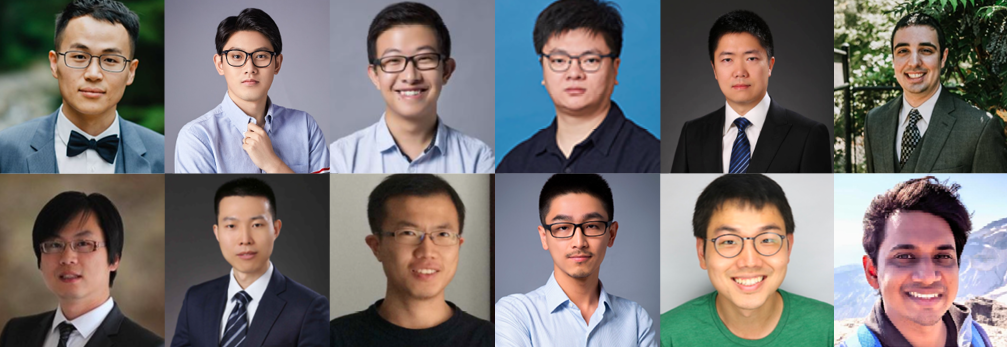Access Computing Summer Program
Making technologies easily accessible to everyone
Introduction
Now more than ever, technology is capable of addressing the issues that we face both as individuals and as a society. These problems include, but are not limited to, the lack of assistive technologies for individuals with disabilities, limited access to health screening technologies, etc. The Access Computing Summer Program (ACSP) brings together the next generation of global talent in computer science and related fields to develop highly impactful solutions that address these grand challenges. Students in the ACSP will be able to practice a variety of human-centered design methods to develop novel sensing techniques, user-friendly interfaces, and cutting-edge computer technologies.
About the Program
This summer, the Access Computing Summer Program will be held from July 3rd to August 27th, 2023. We aim to recruit up to twenty four full-time participants with a background in computer science, electrical engineering, industrial engineering, psychology, or some other equivalent discipline. Participants will join a well-defined applied research project in a team of two participants and one mentor. The sponsoring faculty will supplement the mentorship with periodic advising.
The Access Computing Summer Program will also include lectures on topics within ubiquitous computing and human-computer interaction from academic and industry speakers. The program will also include lectures/workshops on embedded hardware, signal processing, machine learning, and paper reading/writing skills.
Personnel
This program is sponsored by the Global Innovation Exchange (GIX), a program founded by the University of Washington, Tsinghua University, and Microsoft to train the next leaders of innovation. This program is co-hosted by the China Computer Federation (CCF), a leading organization on computing technology and applications in China.
Program participants will be led by numerous experts in ubiquitous computing and human-computer interaction:
General Chairs

-
Shwetak Patel, Professor, University of Washington
View his bio or visit the Ubicomp lab at the University of Washington in Seattle
website to learn more. -
Yuanchun Shi, Professor, Tsinghua University
Visit the Pervasive Human-Computer Interaction Lab at Tsinghua University in Beijing website to learn more.
-
Yunhao Liu, Professor, Tsinghua University
Visit his website to learn more.
Program Chairs

- Fan Dang, Assistant Professor (Research Track), Tsinghua University
- Yukang Yan, Postdoctoral Fellow, Carnegie Mellon University
- Yuntao Wang, Associate Professor (Research Track), Tsinghua University
Mentors

- Yuntao Wang, Associate Professor (Research Track), Tsinghua University
- Yukang Yan, Postdoctoral Fellow, Carnegie Mellon University
- Fan Dang, Assistant Professor (Research Track), Tsinghua University
- Teng Han, Associate Professor, Chinese Academy of Sciences
- Xuan Ding, Assistant Professor (Research Track), Tsinghua University
- Alex Mariakakis, Assistant Professor, University of Toronto
- Xingdong Yang, Associate Professor, Simon Fraser University
-
Xin Yi, Assistant Professor, Tsinghua University
- Yan Chen, Assistant Professor, Virginia Tech
- Pengfei Zhou, Assistant Professor, University of Pittsburgh
- Haojian Jin, Assistant Professor, UC San Diego.
- Anandghan Waghmare, Ph.D. student, University of Washington
Access Computing Summer Program in the Past Years
ACSP 2022
ACSP 2022 had 88 applications from 7 countries and 40 universities. We recruited 22 participants who were engaged in 12 innovative projects. The ACSP 2022 had 7 paper submissions to top-tier conferences/journals in the areas of HCI, ubicomp, and healthcare. 4 papers were accepted by the CHI 2022 or IMWUT. There are 2 more ongoing projects targeting top-tier conferences/journals, including IMWUT.
ACSP 2021
ACSP 2021 had over 90 applications from 9 countries and 38 universities. We recruited 15 participants who were engaged in 8 innovative projects. The ACSP 2021 had 5 paper submissions to top-tier conferences/journals in the areas of HCI, ubicomp, and healthcare. 3 papers were accepted by the CHI 2022 or IMWUT. There are 3 more ongoing projects targeting top-tier conferences/journals including UIST 2022 and IMWUT.
ACSP 2020
ACSP 2020 had over 100 applications from 8 countries and 41 universities. We recruited 25 participants who were engaged in 10+ innovative projects. The ACSP had 8 paper submissions to top-tier conferences/journals in the areas of HCI and ubicomp. 5 papers were accepted by the CHI 2021, CHI 2022, IMWUT, or DIS 2021.
Post-graduate Offers
More than 40 participants received Ph.D. offers from Tsinghua University, Georgia Institute of Technology, Carnegie Mellon University, University of California San Diego, and the University of Toronto or master’s degree offers from Tsinghua University, Carnegie Mellon University, University of Washington, University of Calgary, Sorbonne University, University of Edinburgh, etc.
Project Showcase
The ACSP is broadly focused on human-centered applications of computer science, particularly human-computer interaction (HCI) and ubiquitous computing (ubicomp). These domains require a wide variety of skills, including some combination of applied sensing, signal processing, machine learning, computer vision, embedded systems, and human-centered design. Examples of past projects by ACSP mentors and students are listed below.
- HandAvatar: Embodying Non-Humanoid Virtual Avatars through (Accepted by CHI 2023, completed during ACSP 2022)
- EarCough: Enabling Continuous Subject Cough Event Detection on Hearables (Accepted by CHI 2023, completed during ACSP 2022)
- MMPD: Multi-Domain Mobile Video Physiology Dataset (Submitted to EMBC 2023, completed during ACSP 2022)
- Deep physiological sensing toolbox (completed during ACSP 2022)
- TypeOut: Leveraging Just-in-Time Self-Affirmation for Smartphone Overuse Reduction (Accepted by CHI 2022, completed during ACSP 2021) (Video)
- Modeling the Trade-off of Privacy Preservation and Activity Recognition on Low-Resolution Images (Accepted by CHI 2023, completed during ACSP 2021)
- Modeling the Noticeability of User-Avatar Movement Inconsistency for Sense of Body Ownership Intervention (Major revision by IMWUT 2022, completed during ACSP 2021)
- MobilePhys: Personalized Mobile Camera-Based Contactless Physiological Sensing (Accepted by IMWUT 2022, completed during ACSP 2021)
- NkhukuProbe: Using a Sensor-Based Technology Probe to Support Poultry Farming Activities in Malawi (Best Paper at COMPASS 2022, completed during ACSP 2021)
- FaceOri: Tracking Head Position and Orientation Using Ultrasonic Ranging on Earphones (Accepted by CHI 2022, completed during ACSP 2020) (Video)
- Facilitating Text Entry on Smartphones with QWERTY Keyboard for Users with Parkinson’s Disease (Accepted by CHI 2021, completed during ACSP 2020) (Video)
- HulaMove: Using Commodity IMU for Waist Interaction (Accepted by CHI 2021, completed during ACSP 2020) (Video)
- Understanding the Design Space of Mouth Microgestures (Accepted by DIS 2021, completed during ACSP 2020) (Video)
- SplitSR: An End-to-End Approach to Super-Resolution on Mobile Devices (Accepted by IMWUT 2021, completed during ACSP 2020)
Benefits
The ACSP offers a number of benefits and opportunities for participants, including:
- Highly impactful projects for health, accessibility, human-computer interaction, etc.
- Networking and connections for future collaborations.
- Lectures to develop graduate research skills like related work search, paper writing, and paper reviewing.
- Potential publications at top-tier conferences or journals (e.g., CHI, IMWUT, UIST).
- Potential career benefits such as reference letters, internships, and referrals to the GIX Dual Degree Program.
Qualifications
Applicants must be highly proficient in English to participate in this program. They must also currently be pursuing a degree at an accredited post-secondary academic institution in any of the following fields: computer science, electrical engineering, and/or industrial engineering. Prior research experience is desired but not required.

Visa and travel
ACSP 2023 will be held remotely. We are unable to sponsor travel visas to the United States or China.

Topics and Projects
Please select the top 3 preferred projects in the application form from the following projects:
- A virtual coach to maximize the chance of victory in multiplayer sports using game theory
- Required Skills: computer vision, game theory
- Desired Skills: 3D/2D game development, machine learning
- Authoring IoT functions using large language model
- Required Skills: have experience with Python, natural language processing
- Desired Skills: AR development, familiar with user-centered design
- Blood pressure monitoring using commodity hardware in wearables
- Required Skills: Signal processing, machine learning, user study design
- Desired Skills: On-device machine learning, audio signal processing, cardiovascular medical background
- Crowdsensing-based botnet detection
- Required Skills: strong programming skills
- Desired Skills: ZMap, Linux-based networking programming
- Detecting vaping/smoking events using earbud sensing
- Required Skills: Strong programming skills (preferably Python), machine learning
- Desired Skills: Audio signal processing
- Efficient human activity recognition using cross-device multimodal sensors
- Required Skills: Strong programming skills, signal processing, deep learning, user study design
- Desired Skills: On-device machine learning, Bayes network
- Facilitating interaction with AIGC using proactive feedback
- Required Skills: artificial intelligence, user interface design
- Desired Skills: deep learning, user study design, virtual reality
- Hand tracking using RF sensing
- Required Skills: Strong programming skills
- Desired Skills: Python, Machine Learning
- Road slope estimation via multimodal sensing
- Required Skills: signal processing, artificial intelligence
- Desired Skills: Android programming
- Augmenting physical controls with electrotactile stimulation
- Required skills: embedded development, AR/VR application development
- Design skills: fabrication, signal processing
- Retargeted self-haptics with electrotactile stimulation in VR
- Required skills: embedded development, AR/VR application development
- Design skills: signal processing, user experiment design
- Revolutionizing Text Input with Large Language Models
- Required Skills: strong programming skills,
- Desired Skills: mobile programming, machine learning, user study
- Security and privacy around large language models
- Required Skills: strong programming skills.
- Desired Skills: Knowledge about large language models, folk models, user study
- Understanding programming learners’ mental model using their editor activities
- Required Skills: Experience in JavaScript frameworks (front-end and back-end)
- Desired Skills: user-centered design, visualization
- User behavior modeling of implicit and subtle movement
- Required Skills: user study design, computational modeling
- Desired Skills: virtual reality, authentication, signal processing
- Embodying humanoid avatars via tangible objects in Virtual Reality
-
Required Skills: programming skill, development experience with Unity
-
Desired Skills: computer vision/computer graphics
-
- Understanding sense of presence in remote collaborations
-
Required Skills: programming skill, development experience with Unity
-
Desired Skills: user study design, statistical analysis
-
Apply Now
Contact Us
If you have any questions, please send inquiries to either yuntaowang@tsinghua.edu.cn, dangf09@gmail.com, or yanyukanglwy@gmail.com with the tag [ACSP] in the subject line.



